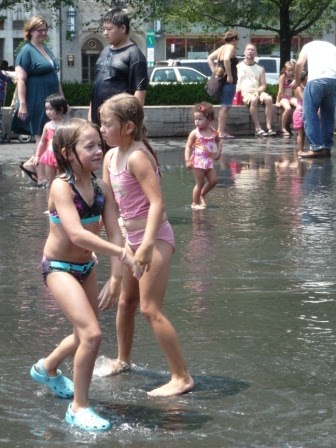Day 3 Week 2.
adding weird tics and quirks: start a scene with 2 people in silence. deal with your environment, start with a character close to yourself. colleen interrupted and added a physical characteristic (eg everyone got shirley temple pouty mouth; in another they all had giant hard-ons; had to wink after each line). it added a sub text. we were encouraged to notice how the change made us feel (childish, tickly, sad, horny?) and play that emotion. added enormously to the scenes. it served to intensify all of the emotions.
so it’s important to make the physical into an emotional / personality attribute (don’t just pout, how does pouty make you feel, make that your thing). this is a short cut to an organic character, rather than playing the idea of a pouty person.
if you hear the audience laughing and you don’t know why this is usually an indication that you’re doing something true to the character, rather than doing a “bit” to make them laugh
the porch exercise: 4 people on stage, on chairs, each one chooses an activity (independently of the others), and based on how this makes them feel chooses an attitude / emotion, a point of view. then the job is to heighten this through the scene (this is your own game of the scene – e.g. you do a crossword puzzle but it’s frustrating, so you’re the guy who’s frustrated with everything; you clip coupons, so you feel thrifty, so you’re the bargain hunting nit picker). Meanwhile, of course, everyone on stage knows each other somehow. during the scene we find out how they know each other. and they are sitting watching something (on the porch) which we also need to find out.
if you’re doing some object work and you think it’s one thing (making clay volcanoes), and it’s named something else (jenga), then keep the emotional stuff you set up for yourself (focused, obsessed, etc), even though the object has changed. because you’ve already established that.
the ambiguous exercise an organic game – exploring stage pictures, something nice for the audience to look at, symmetry, mirroring, not necessarily tangible or narrative
o mighty isis – appealing to the god isis to “show me …” a car, a tree, a circus, and the whole group paints it. it’s about watching the offers already there. Then we moved to just making an object without a suggestion,
flying – we spent a short while lifting each other. apparently a nod to safety in case it happens in the grad show.
narrative fantasy – essentially typewriter with 7 players acting out everything, playing the furniture and the trees and environment etc. as well as being the protagonist
wisdoms:
it’s not a rule that we don’t ask questions, it’s a guidelines to make our jobs easier
your character can be the game of the scene
if you don’t know how you feel about what you’re doing, just choose some way
what you say in a scene doesn’t need to be logical sense, but it needs to be in character / show what you are obsessed with (what do you think of Star Wars? It says we’ll all die someday (from a nihilistic character), it’s about love (from a romantic), it endorses incest (from an uptight character).
totally legit to say ‘What?” if you’re so obsessed with your object work that you miss something
annoyance says accept the radical over the top character choices. iO says “hey, why are you acting crazy”.
charna came from a short form background, del from scenic work and long form at second city; originally group games were proper set games. eventually they introduced more organic options
armando advice:
three possible functions of a monologue: to sympathise or empathise or educate
you are unique, interesting people, we want to see who you are






